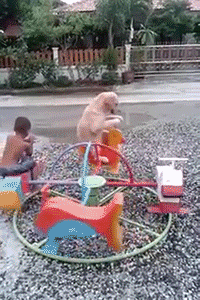🪁✨The Nexialist #0016
How Does It Feel? | Languishing | Gregarious | C. Tangana | Octopus Swarm | Pissbeer Bot | Back to Playing | Fevers of Curiosity and more...
Welcome back! Are you game for this week’s Nexialist?
While writing this, I felt like my brain was going into a short circuit. So if you allow me, today I’ll just skip right to the filling of this cake. Savor or binge it. It’s your choice. Just remember to send this link if you think of someone. They will enjoy the fact you remembered them, they might enjoy the link (I hope so), and I’ll enjoy the love.
🫀How Does It Feel?
I’ll kick off this week’s newsletter with London Grammar’s new album, Californian Soul, which I can’t stop listening to. It is one of these albums that flows so well when you realize it’s finished. Hannah’s voice is like a hug inside my head, and their live video made me fall in love with them a bit more. You get to see a bit of the way they connect together. So good!
🤔Are you Languishing?
Languishing is a sense of stagnation and emptiness. It feels as if you’re muddling through your days, looking at your life through a foggy windshield. And it might be the dominant emotion of 2021.
I think I have been to that place a few times. As I read this article, it felt so good to give a name to it, some kind of relief. It also gives more of a spectrum beyond the depressed/happy binary:
In psychology, we think about mental health on a spectrum from depression to flourishing. Flourishing is the peak of well-being: You have a strong sense of meaning, mastery and mattering to others. Depression is the valley of ill-being: You feel despondent, drained and worthless. Languishing is the neglected middle child of mental health. It’s the void between depression and flourishing — the absence of well-being. You don’t have symptoms of mental illness, but you’re not the picture of mental health either. You’re not functioning at full capacity. Languishing dulls your motivation, disrupts your ability to focus, and triples the odds that you’ll cut back on work. It appears to be more common than major depression — and in some ways it may be a bigger risk factor for mental illness.
You probably noticed that I like to learn new concepts and words, so Adam Grant, who wrote this NYT article, puts it very well what I said in The Nexialist #14 (with more reading recommendations):
Psychologists find that one of the best strategies for managing emotions is to name them. Last spring, during the acute anguish of the pandemic, the most viral post in the history of Harvard Business Review was an article describing our collective discomfort as grief. Along with the loss of loved ones, we were mourning the loss of normalcy. “Grief.” It gave us a familiar vocabulary to understand what had felt like an unfamiliar experience. Although we hadn’t faced a pandemic before, most of us had faced loss. It helped us crystallize lessons from our own past resilience — and gain confidence in our ability to face present adversity.
Read: Feeling Blah During the Pandemic? It's Called Languishing - The New York Times
🥰Gregarious
Gregarious (adjective):
(of a person) fond of company; sociable.
(of animals) living in flocks or loosely organized communities.
(of plants) growing in open clusters or in pure associations.
Tiny Desk has the power to make intimate concerts, and this one made me think of this word. With the pandemic, they are doing their tiny desks concerts from different countries, changing that intimate feel. In this family dinner, C. Tangana put a smile on my face. It felt like such a warm family gathering, and I hope this cheers you up as much as it did to me.
🐙A Swarm of Octopuses?
For a while, I had heard octopuses are solitary creatures that meet to mate or eat one another. Well… apparently, they are starting to hang out in groups. Perhaps in a few years, humanity will be in real trouble if they start acting collectively.
Also, I’ve said it here before: I absolutely love to hear the scientists discovering things. It makes me really feel part of it.
Also watch: Animal Intelligence, Explained.
🍺Beer Pissbot
Coming from useful state-of-the-art robot to a not so useful state-of-the-art robot. One of those videos that the trending lists showed me, and I could not NOT click. Michael gets this Boston Dynamics creepy-cute-expensive robot and teaches it how to pee ber. It’s so nice to see Michael’s process and his excitement while experimenting with making this robot. It’s also a nice playful class about robotics.
🪁When We Stop Playing?
Last Nexialist, I finished talking about how playfulness is crucial for imagination. This Brazilian documentary focuses exactly on that issue, bringing playfulness as a remedy for our minds and bodies, “the missing revolution, the children’s revolution.” It gives me chills to watch even the trailer.
Where's our playful spirit? What is the place of playing in our lives?
Controlled substances appear to be the immediate cure for anxiety, insecurity, fear and depression. But what would happen if we put a dose of playfulness in our day to day?
Through reflections by adults of different generations, backgrounds and professions, Drops of Joy, directed by Cacau Rhoden and produced by Maria Farinha Filmes, explores the concept of "playful spirit", so fundamental to human nature, and about how the contemporary human being relates to it.
🎩Fevers of Curiosity
The archetype of the flâneur always fascinated me for its curiosity (or the cyber-flanêur for that matter, which I can relate with). “The flâneur who saunters through the metropolitan city, as a supremely self-confident inhabitant of the mid-nineteenth century streets — a “passionate spectator” of their multifarious life-forms.”
This wonderful text from Matthew Beaumont just brought different perspectives about it, investigating pieces from Poe, Baudelaire, and Coleridge, while introducing another archetype that I wasn’t familiar with, the convalescent:
The idea of convalescence as an aesthetic disposition probably originates in Samuel Taylor Coleridge’s Biographia Literaria (1817). There, the convalescent’s experience of his environment is often directly compared to that of the child, because the convalescent’s delicate receptiveness to life — a helpless openness to unexpected or half-forgotten sensations — has something of childhood’s brittle innocence. For Coleridge, convalescence also has an innate poetic intensity. In the first volume of the Biographia, he characterises genius as the capacity “to combine the child’s sense of wonder and novelty with the appearances which every day, for, perhaps, forty years, had rendered familiar [sic]”. The “prime merit” of genius, he continues, and “its most unequivocal mode of manifestation”, is “so to represent familiar objects as to awaken in the minds of others a kindred feeling concerning them, and that freshness of sensation which is the constant accompaniment of mental, no less than of bodily convalescence”.
This week’s Nexialist was just a reminder for us to recover our child’s curiosity and playfulness. Have a good one! 🫀
❤️If anything made your brain tingle, click like and don't hesitate to share it with the world. It helps The Nexialist to reach more curious minds. See you next week!🦦
🫀If you enjoyed this newsletter, please share it with your friends. If someone amazing sent it to you, tell them you love them, and you can subscribe at thenexialist.substack.com. If you want to know what a Nexialist is, click here. If you want to introduce yourself or give me any feedback, I would love to hear from you. Drop me an e-mail or say hi on LinkedIn or Instagram.








Thanks for yet another boost to my brain activity! The Languishing post resonates particularly with a feeling that I have either experienced myself sometime last year or I have seen in others. I also wanted to mention how I have always been shocked about how little emotional literacy we have, hence I immendiately connected with your post in TN #14. Can you believe there are more than 1600 types of cheese only in France (with singular names each one of them) and we still use no more than 15 common words to describe our feelings? Imagine how richer our behaviour and human interacions would be if we could tag our feelings properly and communicate from there. Looking forward to the next edition and wishing you a great week!